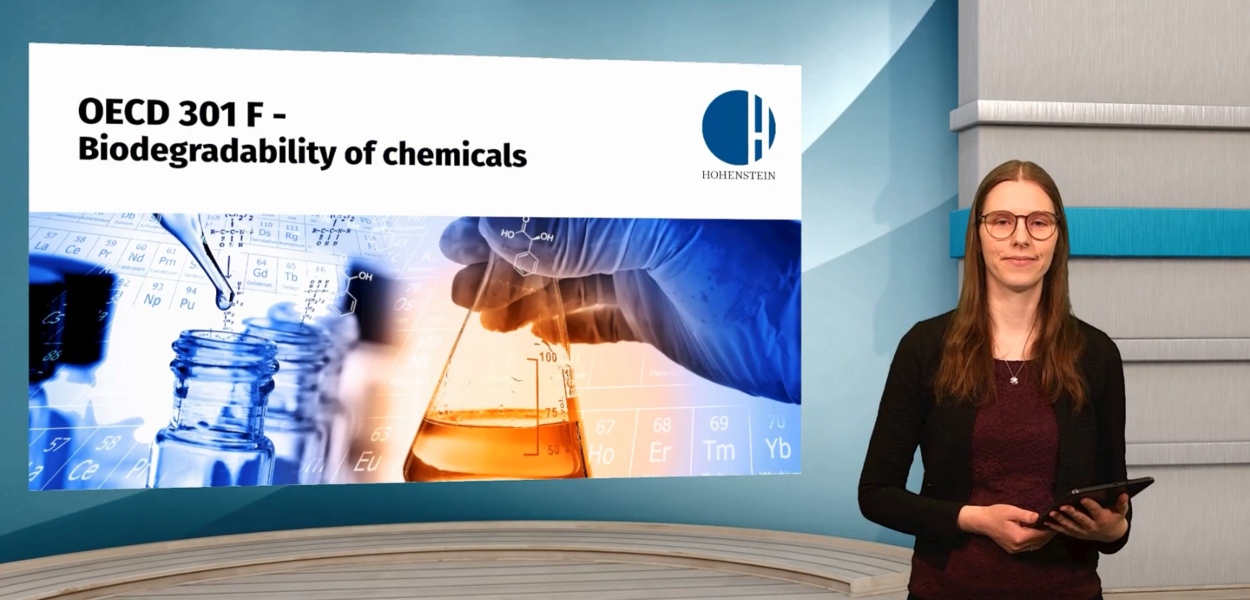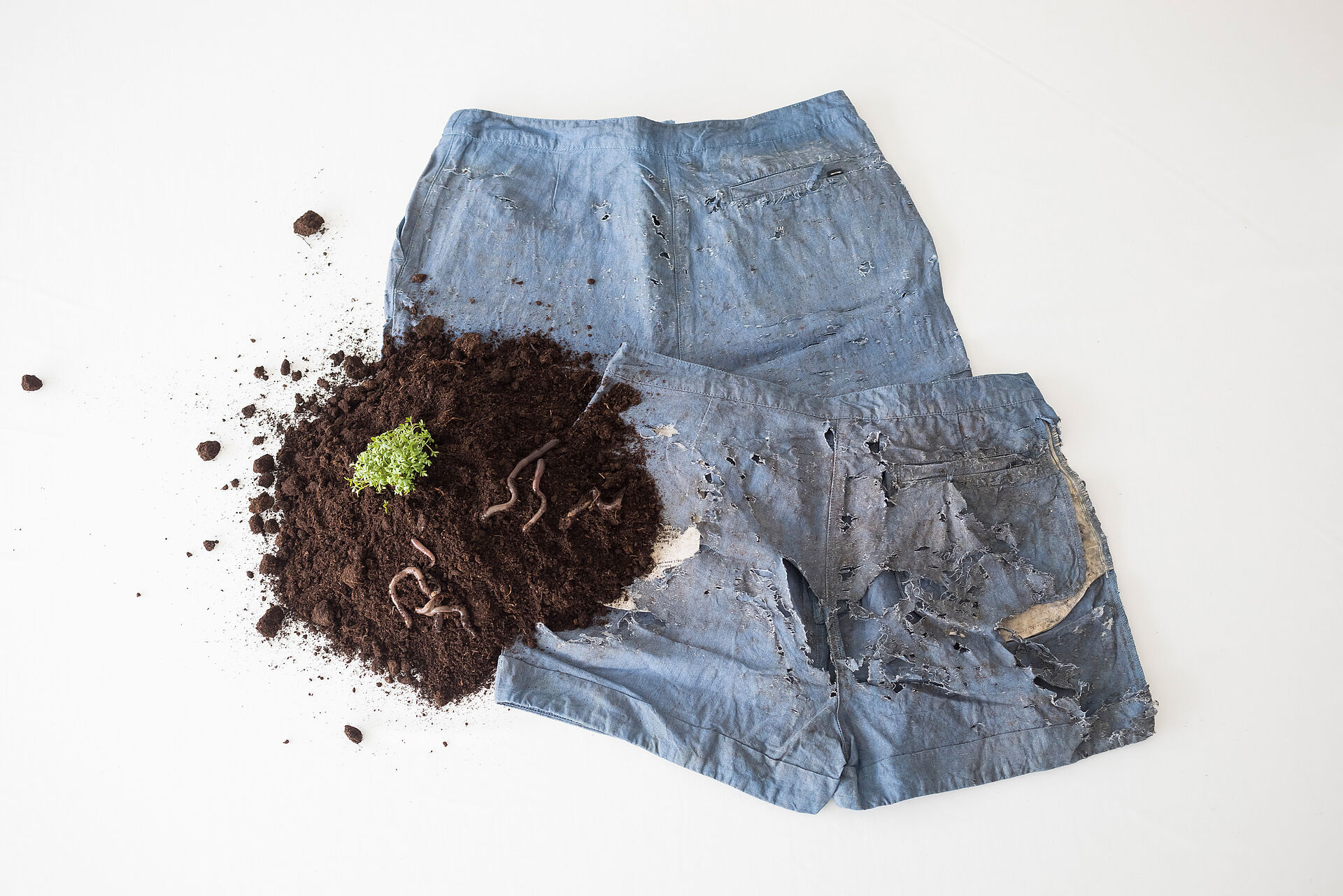Biodegradability for a holistic view of sustainability.
A holistic view of sustainability focuses not only on manufacturing and product safety, but also on the fate in the environment after the end of the product life cycle. This is why we specifically test chemicals and textiles for their biodegradability – for products that are not only safe today, but also protect our environment tomorrow.
Biodegradation of textiles
Hohenstein test for the biodegradation of textiles
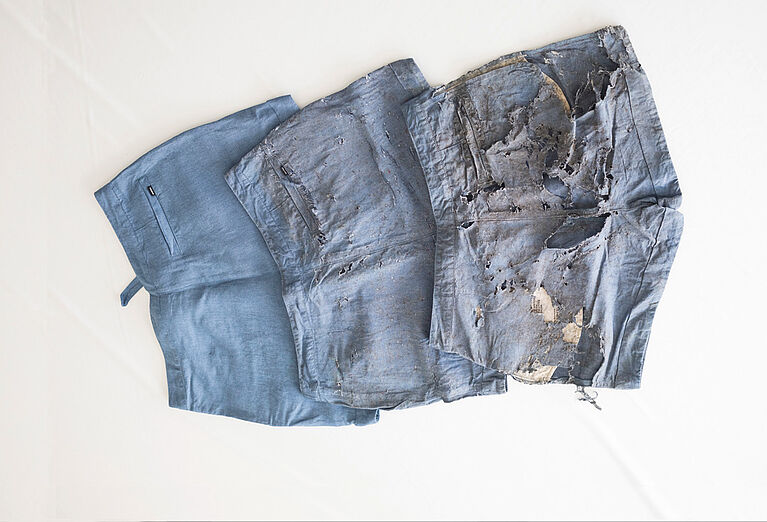
The biodegradation (biodegradability) test established by Hohenstein assesses the degradation of textile products over a defined test period and through controlled soil burial. The test is based on international standards, which are used to determine the rotting and degradation behaviour of materials.
In this way, you can transparently communicate the environmental impact of your textiles to the outside after the end of use - demonstrating that your responsibility spans the entire usage cycle.
Methods
The Hohenstein test setup was developed in accordance with the following standards:
- DIN EN ISO 11721-1: Textiles - Determination of resistance of cellulose-containing textiles to micro-organisms - Soil burial test - Part 1: Assessment of rot-retardant finishing
- DIN EN ISO 846: Plastics - Evaluation of the action of microorganisms on plastics
We test:
- The mass loss of the textile:
the decay process of a product by micro-organisms like fungi and bacteria in combination with oxygen in the soil is examined. - The ecotoxicological safety of the textile:
cress and earthworm tests are used to test the impact on the environment.
How we test
We carry out the tests under defined laboratory conditions, with incubation in standardised test containers under constant climatic conditions.
We test in standardised test soil under aerobic conditions, whereby the biological activity is monitored using a reference sample.
Sampling and sample cleaning are carried out after three defined excavation dates (these can be set differently depending on the product).
The evaluation of the tests is carried out after a specified test period on the basis of the degradation rate of the test samples by means of a qualitative evaluation of the sample material by determining the mass loss.
Furthermore, we check the environmental compatibility or environmental pollution by the degradation products by means of ecotoxicological tests and can optionally supplement these with chemical analyses.
Your benefits
- Objective measurement of biodegradability in soil under natural conditions
- Verification of marketing claims
- Product optimisation on the basis of our results
- Labelling of biodegradable textile products by a Hohenstein Quality Label (B2C) or by a Hohenstein certificate (B2B)
- Determination of the risks of your product for the environment
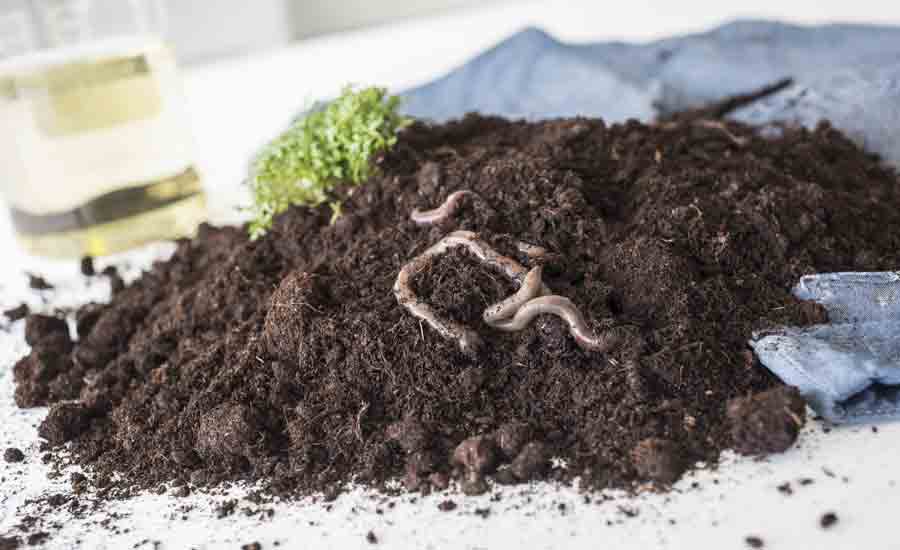
Biodegradation of Chemicals
Testing the biodegradation of chemicals according to OECD 301 F
The OECD test 301 F is a method for assessing the ready biodegradability of chemicals in an aerobic aqueous environment. It measures the oxygen consumption of microorganisms during the degradation of the test substance over a period of 28 days. This test can be used to determine whether a chemical can be considered environmentally friendly by assessing its potential for natural degradation under certain conditions.
Download OECD 301
Information we need for testing:
- Name and molecular formula of the chemical substance
- Characteristic properties such as water solubility, vapour pressure, etc.
- Safety instructions
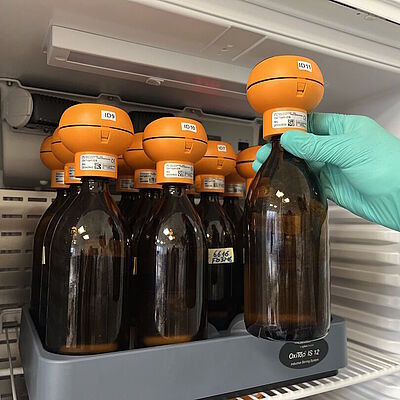
OECD 301 F to the point
Our webcast explains the OECD 301 F test methodology in detail.
